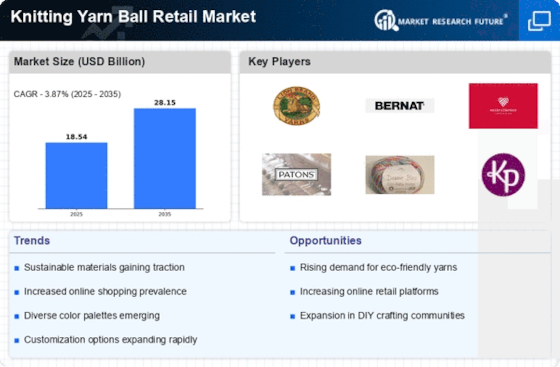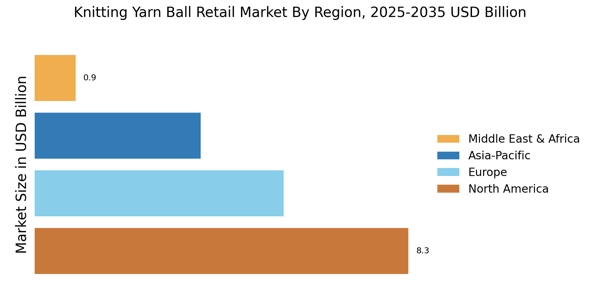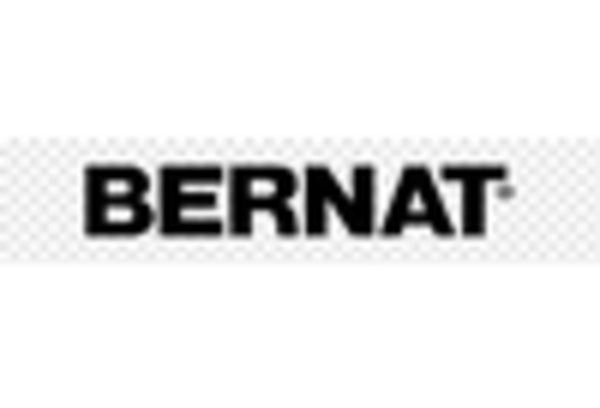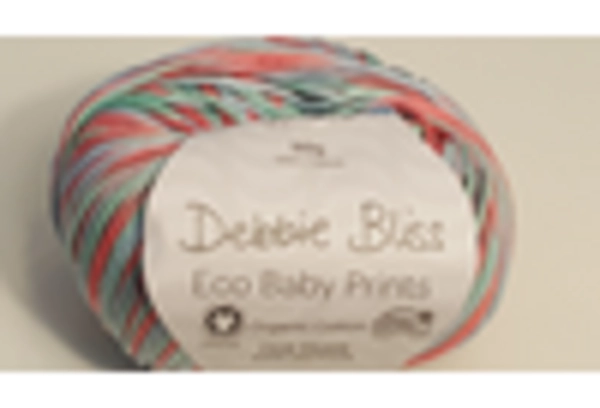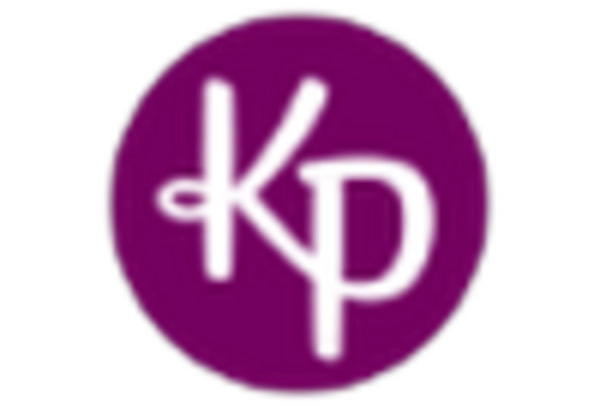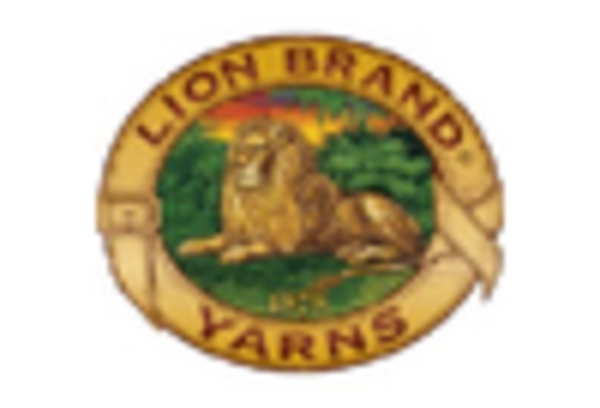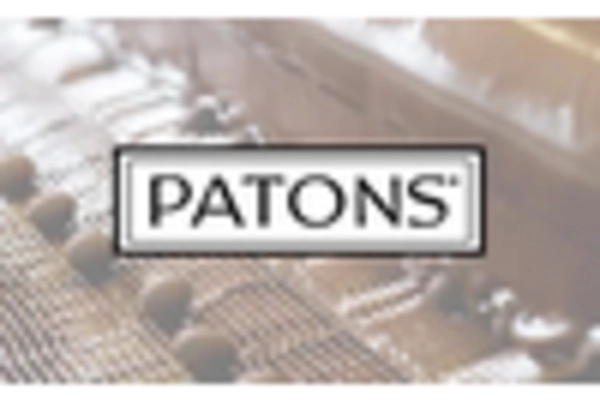E-commerce Expansion
The Knitting Yarn Ball Retail Market is witnessing a significant transformation due to the rapid expansion of e-commerce platforms. With the convenience of online shopping, consumers are increasingly turning to digital channels to purchase knitting supplies. Recent data indicates that online sales in the crafting sector have grown by over 25% in the past year, reflecting a shift in consumer behavior. This trend is particularly advantageous for niche retailers who can offer a wider variety of yarn options and cater to specific customer preferences. As e-commerce continues to evolve, the Knitting Yarn Ball Retail Market is likely to see enhanced accessibility and a broader customer base, ultimately driving sales and market growth.
Sustainability Trends
Sustainability has emerged as a pivotal driver within the Knitting Yarn Ball Retail Market, as consumers become increasingly conscious of their environmental impact. The demand for eco-friendly yarn options, such as organic cotton and recycled fibers, is on the rise. Recent studies suggest that nearly 60% of consumers are willing to pay a premium for sustainable products, indicating a shift in purchasing priorities. This trend not only reflects a growing awareness of environmental issues but also presents an opportunity for retailers to differentiate themselves by offering sustainable yarn options. As the Knitting Yarn Ball Retail Market adapts to these changing consumer preferences, it may witness a significant increase in sales of eco-conscious products.
Rising Crafting Popularity
The Knitting Yarn Ball Retail Market is experiencing a notable surge in popularity as crafting activities gain traction among diverse demographics. This trend is particularly evident among younger generations, who are increasingly drawn to knitting as a form of creative expression and relaxation. According to recent surveys, approximately 40% of individuals aged 18-34 have engaged in knitting or similar crafts in the past year. This growing interest is likely to drive demand for various types of yarn, including specialty and eco-friendly options, thereby expanding the market. As more individuals seek to personalize their projects, the Knitting Yarn Ball Retail Market is poised to benefit from this influx of new consumers eager to explore their creativity.
Community and Social Engagement
The Knitting Yarn Ball Retail Market is increasingly influenced by community and social engagement initiatives. Local knitting groups and online communities foster a sense of belonging among enthusiasts, encouraging collaboration and sharing of ideas. This communal aspect not only enhances the knitting experience but also drives sales as members seek to purchase yarn and supplies for group projects. Recent surveys indicate that nearly 50% of knitters participate in community events or workshops, highlighting the importance of social interaction in this market. As the Knitting Yarn Ball Retail Market continues to embrace community-driven initiatives, it is likely to see sustained growth and a loyal customer base.
Increased Interest in DIY Projects
The Knitting Yarn Ball Retail Market is benefiting from a heightened interest in do-it-yourself (DIY) projects, as consumers seek to create personalized items for themselves and their homes. This trend is fueled by social media platforms, where DIY tutorials and knitting patterns are widely shared, inspiring individuals to take up knitting. Recent statistics indicate that DIY crafting has seen a 30% increase in participation over the last year, suggesting a robust market potential. As more consumers engage in knitting as a hobby, the demand for diverse yarn options and accessories is likely to rise, further propelling the growth of the Knitting Yarn Ball Retail Market.


